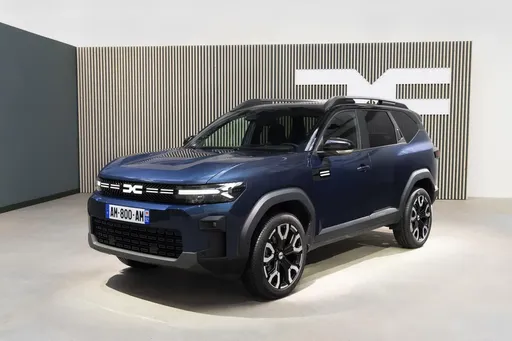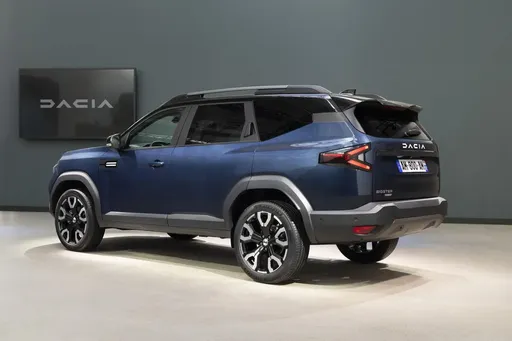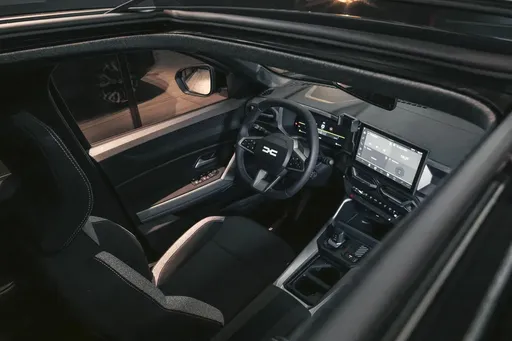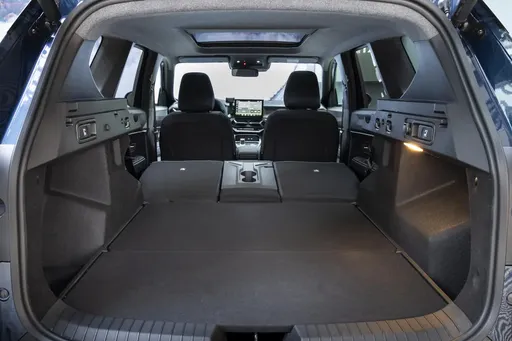VW Tiguan vs Dacia Bigster - Differences and prices compared
Compare performance (272 HP vs 155 HP), boot space and price (33300 £ vs 20600 £ ) at a glance. Find out which car is the better choice for you – VW Tiguan or Dacia Bigster?
Costs and Efficiency:
Price and efficiency are key factors when choosing a car – and this is often where the real differences emerge.
Dacia Bigster has a decisively advantage in terms of price – it starts at 20600 £ , while the VW Tiguan costs 33300 £ . That’s a price difference of around 12738 £.
Fuel consumption also shows a difference: VW Tiguan manages with 1.40 L and is therefore significantly more efficient than the Dacia Bigster with 4.70 L. The difference is about 3.30 L per 100 km.
Engine and Performance:
Power, torque and acceleration are the classic benchmarks for car enthusiasts – and here, some clear differences start to show.
When it comes to engine power, the VW Tiguan has a significantly edge – offering 272 HP compared to 155 HP. That’s roughly 117 HP more horsepower.
In acceleration from 0 to 100 km/h, the VW Tiguan is convincingly quicker – completing the sprint in 5.90 s, while the Dacia Bigster takes 9.70 s. That’s about 3.80 s faster.
In terms of top speed, the VW Tiguan performs noticeable better – reaching 242 km/h, while the Dacia Bigster tops out at 180 km/h. The difference is around 62 km/h.
There’s also a difference in torque: VW Tiguan pulls decisively stronger with 400 Nm compared to 230 Nm. That’s about 170 Nm difference.
Space and Everyday Use:
Cabin size, boot volume and payload all play a role in everyday practicality. Here, comfort and flexibility make the difference.
Both vehicles offer seating for 5 people.
In curb weight, Dacia Bigster is to a small extent lighter – 1425 kg compared to 1599 kg. The difference is around 174 kg.
In terms of boot space, the Dacia Bigster offers hardly perceptible more room – 667 L compared to 652 L. That’s a difference of about 15 L.
In maximum load capacity, the Dacia Bigster performs to a small extent better – up to 1937 L, which is about 287 L more than the VW Tiguan.
When it comes to payload, VW Tiguan slightly takes the win – 533 kg compared to 465 kg. That’s a difference of about 68 kg.
Who wins the race in the data check?
The VW Tiguan sits well ahead of its rival in the objective data comparison.
This result only shows which model scores more points on paper – not which of the two cars feels right for you.
Costs and Consumption
View detailed analysis
Engine and Performance
View detailed analysis
Dimensions and Body
View detailed analysis

VW Tiguan
VW Tiguan
The VW Tiguan blends sensible family practicality with a dash of German polish, delivering a calm, reassuring ride and a cabin that never feels like an afterthought. For buyers who want an SUV that’s easy to live with yet still nicely dressed, the Tiguan is the grown‑up choice that keeps a cheeky wink in reserve.
details





Dacia Bigster
The Bigster is poised to redefine the SUV segment with its bold design and spacious interior, catering to the needs of both families and adventure seekers alike. Emphasizing sustainability and practicality, this model reflects a modern approach to automotive engineering, making it a compelling choice for environmentally conscious drivers. With its striking presence on the road, the Bigster not only captures attention but also embodies a new era of versatile mobility.
details




Costs and Consumption |
|
|---|---|
|
Price
33300 - 51900 £
|
Price
20600 - 28100 £
|
|
Consumption L/100km
1.4 - 8.4 L
|
Consumption L/100km
4.7 - 7.2 L
|
|
Consumption kWh/100km
-
|
Consumption kWh/100km
-
|
|
Electric Range
118 - 126 km
|
Electric Range
-
|
|
Battery Capacity
19.70 kWh
|
Battery Capacity
-
|
|
co2
32 - 190 g/km
|
co2
106 - 134 g/km
|
|
Fuel tank capacity
45 - 58 L
|
Fuel tank capacity
50 L
|
Dimensions and Body |
|
|---|---|
|
Body Type
SUV
|
Body Type
SUV
|
|
Seats
5
|
Seats
5
|
|
Doors
5
|
Doors
5
|
|
Curb weight
1599 - 1890 kg
|
Curb weight
1425 - 1611 kg
|
|
Trunk capacity
490 - 652 L
|
Trunk capacity
546 - 667 L
|
|
Length
4539 mm
|
Length
4570 mm
|
|
Width
1842 - 1859 mm
|
Width
1813 mm
|
|
Height
1656 - 1658 mm
|
Height
1705 mm
|
|
Max trunk capacity
1486 - 1650 L
|
Max trunk capacity
1851 - 1937 L
|
|
Payload
460 - 533 kg
|
Payload
434 - 465 kg
|
Engine and Performance |
|
|---|---|
|
Engine Type
Petrol, Petrol MHEV, Diesel, Plugin Hybrid
|
Engine Type
Petrol MHEV, Full Hybrid, LPG
|
|
Transmission
Automatic
|
Transmission
Manuel, Automatic
|
|
Transmission Detail
Dual-Clutch Automatic
|
Transmission Detail
Manual Gearbox, Automated Manual, Dual-Clutch Automatic
|
|
Drive Type
All-Wheel Drive, Front-Wheel Drive
|
Drive Type
Front-Wheel Drive, All-Wheel Drive
|
|
Power HP
130 - 272 HP
|
Power HP
140 - 155 HP
|
|
Acceleration 0-100km/h
5.9 - 10.6 s
|
Acceleration 0-100km/h
9.7 - 10.5 s
|
|
Max Speed
210 - 242 km/h
|
Max Speed
180 km/h
|
|
Torque
220 - 400 Nm
|
Torque
230 Nm
|
|
Number of Cylinders
4
|
Number of Cylinders
3 - 4
|
|
Power kW
96 - 200 kW
|
Power kW
103 - 115 kW
|
|
Engine capacity
1498 - 1984 cm3
|
Engine capacity
1199 - 1799 cm3
|
General |
|
|---|---|
|
Model Year
2024 - 2025
|
Model Year
2025
|
|
CO2 Efficiency Class
G, D, E, F, B
|
CO2 Efficiency Class
D, C
|
|
Brand
VW
|
Brand
Dacia
|
What drivetrain options does the VW Tiguan have?
The VW Tiguan is offered with All-Wheel Drive or Front-Wheel Drive.




